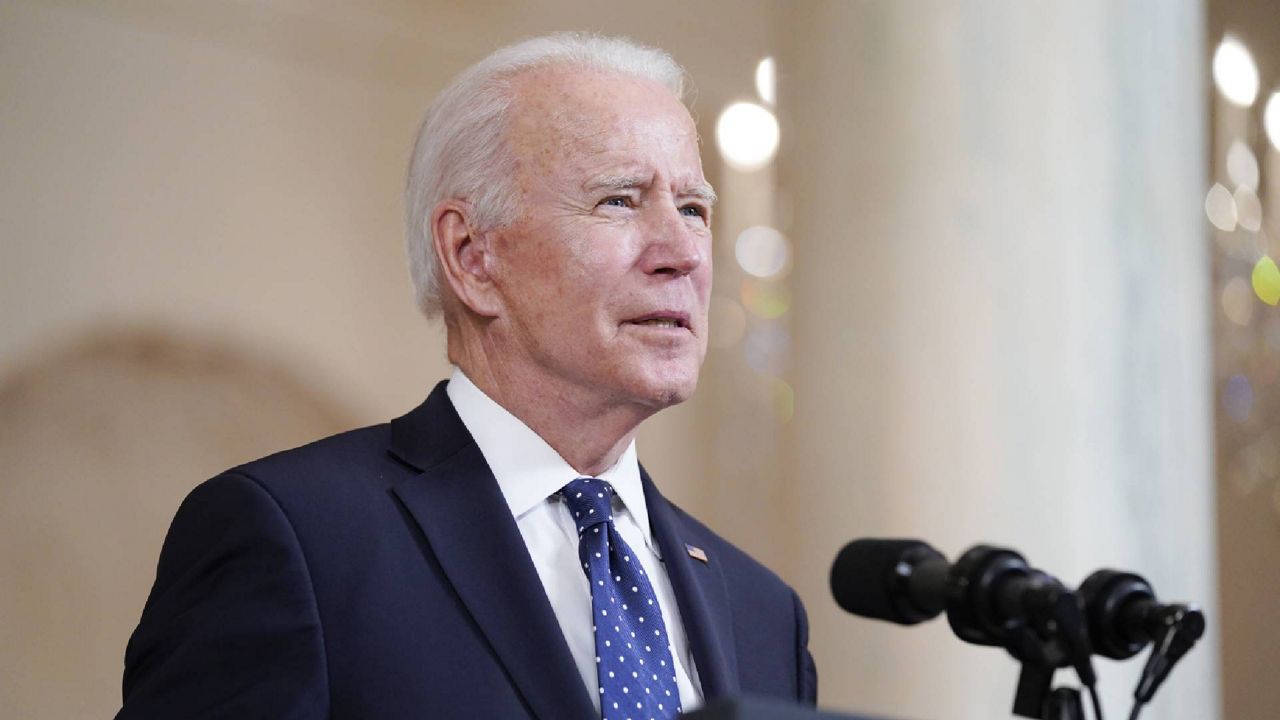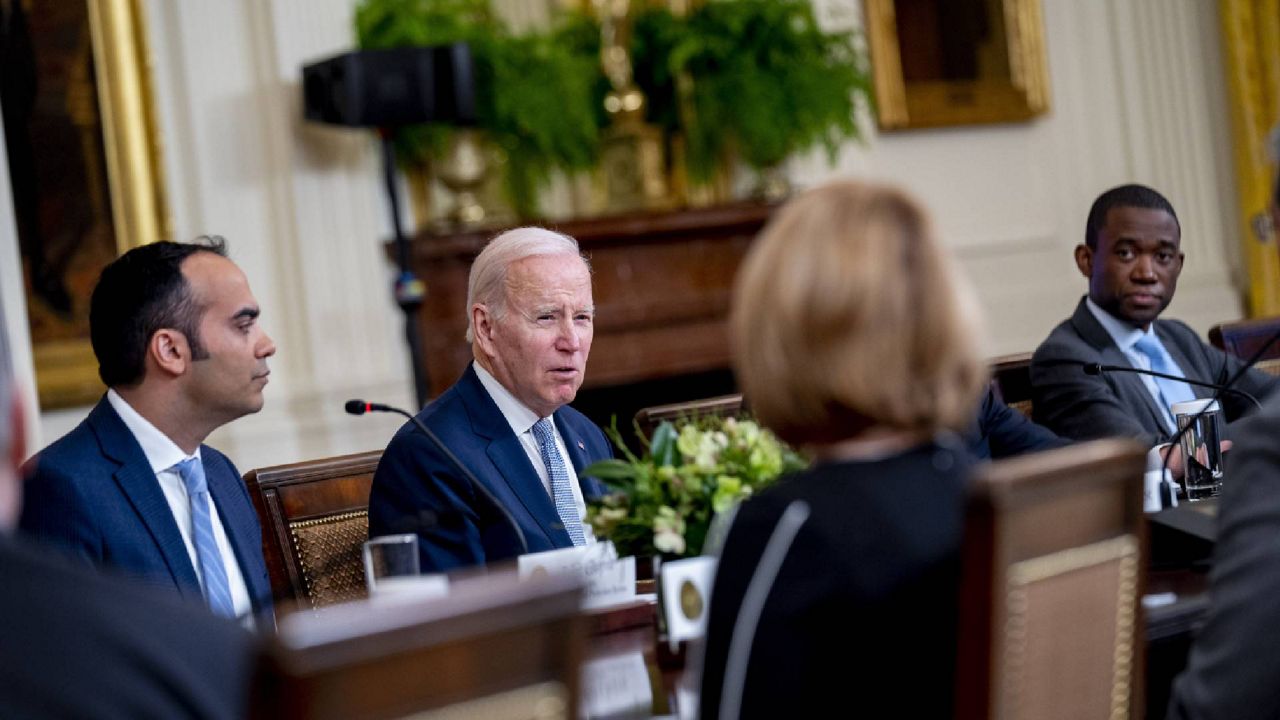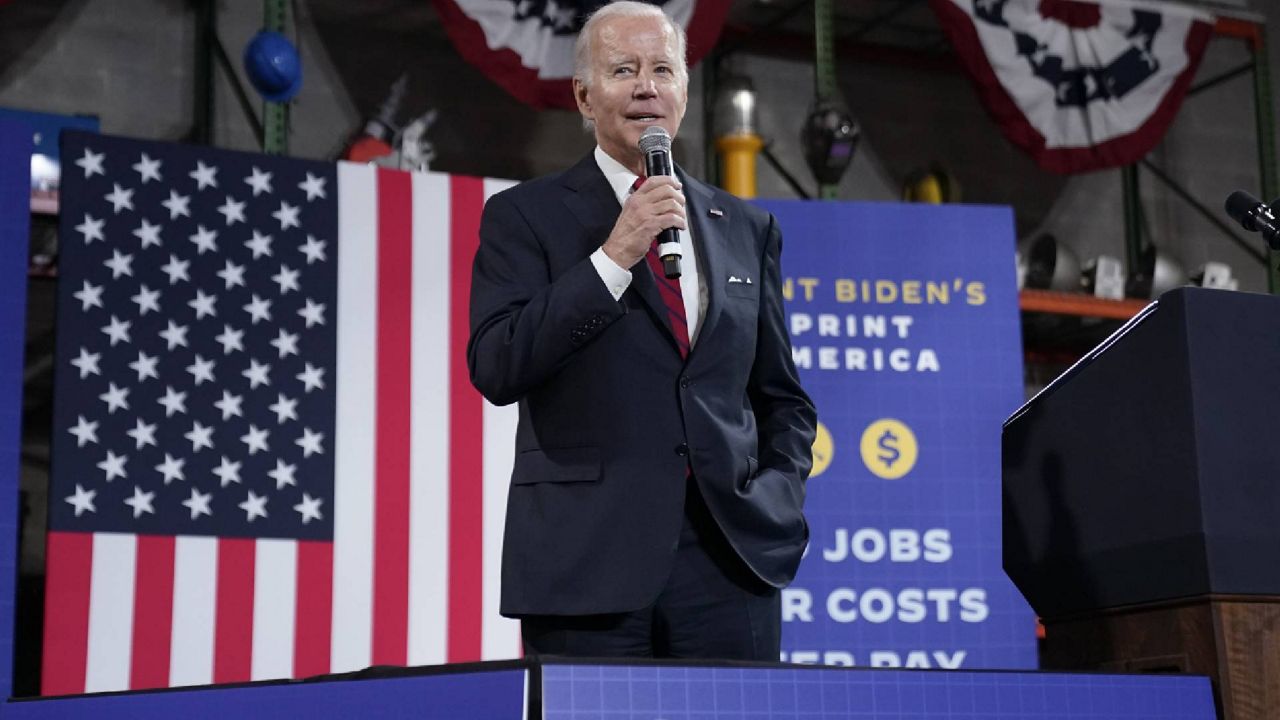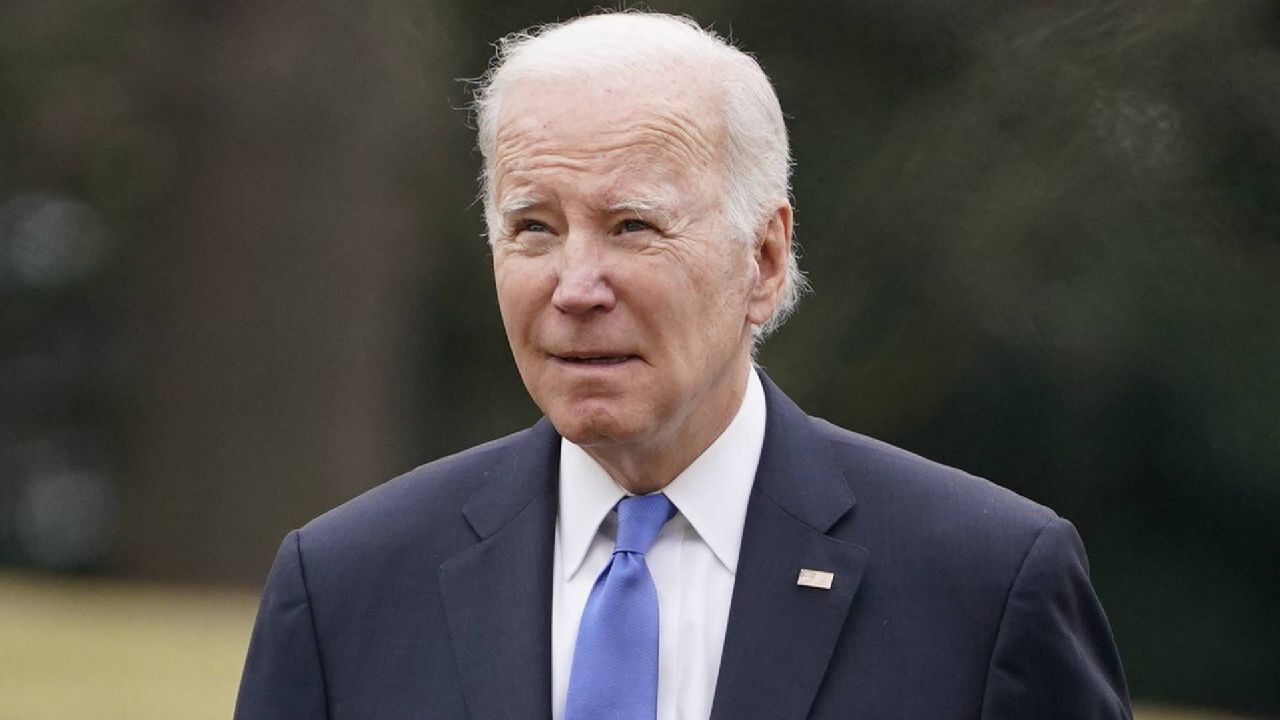President Joe Biden will urge Congress to consider police reform and reiterate his support for the George Floyd Justice in Policing Act during his Joint Address to Congress next week, the White House press secretary said Wednesday.
The president also specifically supports a lower bar for police officer convictions, Press Secretary Psaki said, one day after former Minneapolis cop Derek Chauvin was found guilty for the murder of George Floyd.
The press secretary said President Biden will “use the power of the White House, the bully pulpit,” to encourage Congress to pass the police reform bill named after Floyd, which passed the House in March.
He’s expected to do so in his first speech to Congress on April 28, Psaki said, though she did not guarantee Republican support for the bill, pointing to the fact that negotiations on Capitol Hill are ongoing.
Both Biden and Vice President Kamala Harris called for the passage of the police reform bill in remarks Tuesday night.
“We can’t stop here,” the president said. “In order to deliver real change and reform, we can and we must do more to reduce the likelihood that tragedies like this will ever happen or occur again.”
Included in the bill is a measure to end “qualified immunity,” which often protects police officers from civil lawsuits.
The legislation would also boost “pattern and practice” investigations into police departments by giving the Department of Justice subpoena power. On Wednesday, U.S. Attorney General Merrick Garland announced one of those investigations would begin at the Minneapolis Police Department.
The press secretary said the president supports a “lower bar” for police officer convictions, including as a result of federal investigations.
“He believes the bar is too high,” Psaki said Wednesday.
The George Floyd Justice in Policing Act still faces quite the uphill climb in Congress, but the press secretary didn’t rule out compromise with Republican lawmakers.
“[The president’s] role is to work with leaders in Congress, as he has,” she said, noting conversations with the Congressional Black Caucus. “He’s also asked members of his senior team … to work with outside organizations, civil rights leaders and others to work together to put pressure on Congress to move forward.”










